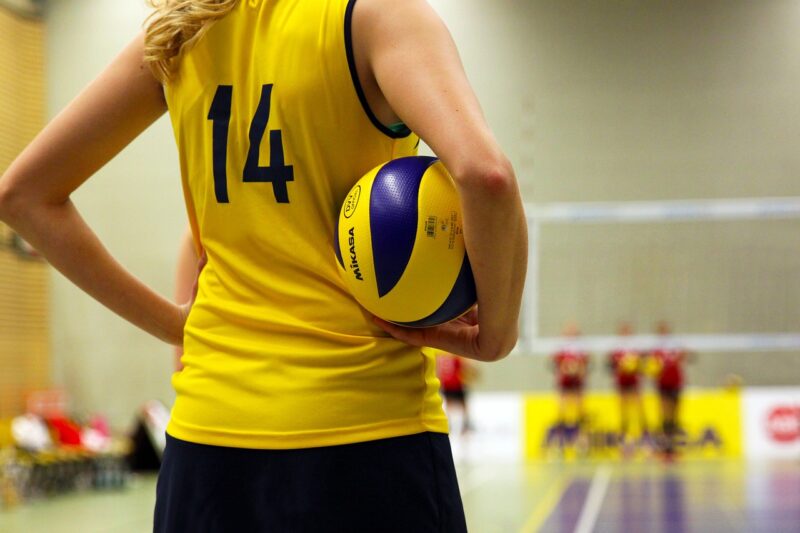The Thrilling Connection Between Sports and National Identity
November 17, 2024

Sports have long been a crucial element of human culture, often serving as a mirror reflecting the complex identities of nations. From the Olympic Games to the FIFA World Cup, sporting events often transcend the boundaries of competition and unify individuals under a shared banner. This article explores the electrifying connection between sports and national identity, its historical context, and the profound impact it has on countries around the globe.
1. Understanding National Identity
National identity refers to a sense of belonging to a particular nation, characterized by common language, culture, history, and often religion. It is both an emotional and psychological construct, influenced by numerous factors, including media, literature, and education. Through sports, nations can express their values, aspirations, and collective experiences.
The concept of national identity is fluid, constantly evolving with global events and internal transformations. Sports become one of the most visible platforms for people to express this identity, illustrating shared passions and values in powerful, often emotional ways.
2. The Historical Context of Sports and National Identity
Historically, sports have been a tool for political expression and national pride. In the early 20th century, nations began to recognize the unifying potential of sports as a means to strengthen national identity.
Take the case of the Olympics:
- 1948 London Olympics: After World War II, nations sought to rebuild their identities. The Olympics served as a symbol of peace and reconciliation, allowing countries to showcase their athletes and achievements on an international scale.
- Nazi Propaganda at the 1936 Berlin Olympics: Adolf Hitler used the event to bolster the idea of Aryan supremacy, showcasing German athletes as a representation of national pride and militaristic superiority, thus intertwining sports with political ideologies.
- Post-colonial Nations: After decolonization, countries like India and Jamaica used cricket and athletics, respectively, to forge national identities and assert independence on the global stage. These sports became synonymous with national pride and unity, promoting cultural heritage and collective aspirations.
Through these historical instances, we see how sports have been manipulated to construct and reshape national identities, sometimes for noble causes and other times for propaganda.
3. Case Studies: Sports as a Reflection of National Identity
Several nations vividly illustrate the strong relationship between sports and national identity:
- United States – American Football: The Super Bowl has become an unofficial national holiday, with millions tuning in to watch the game. It symbolizes American culture, showcasing values like competition, entertainment, and community. The National Anthem and halftime shows further reinforce the cultural narrative of American identity.
- Brazil – Soccer (Football): Soccer is integral to Brazilian culture. The successes of the national team in the World Cup have cemented the sport’s role in shaping national pride. Through the iconic yellow jersey and samba rhythms, soccer transcends sport and becomes a celebration of Brazilian culture and identity.
- South Africa – Rugby: The 1995 Rugby World Cup, which South Africa hosted post-apartheid, is a seminal moment in the nation’s history. The victory led by Nelson Mandela’s support of the Springbok team exemplified the capacity of sports to unite people of different backgrounds and promote reconciliation.
These examples showcase how sports can be more than just games; they are a canvas on which national stories are painted, shaping perceptions, values, and aspirations.
4. The Role of Sports in Contemporary National Identity
Today, the relationship between sports and national identity continues to evolve in the face of globalization and technological advancements. Major sporting events attract global audiences, influencing and reshaping national narratives.
The Globalization of Sports
With sports leagues featuring international players, cultural exchanges occur, and national identities start to blend. While this diversity enriches the game, it also leads to tensions as traditionalist views clash with evolving perceptions of nationality.
Social Media Impact
Sports stars are now global ambassadors, with their actions resonating worldwide. Events like the Black Lives Matter movement, addressed through sports, show how athletes can shape national identity discussions, representing broader social and political issues that span beyond the playing field.
5. The Future: Sports and National Identity
As we look toward the future, the interconnectedness of sports and national identity will continue to play a crucial role globally.
Factors such as technological advancements, shifting political landscapes, and evolving cultural norms will further shape this relationship.
Evolving Fan Cultures
As fan engagement becomes more digital, nuances within national identity may emerge based on how individuals interact with sports online. Global fanbases can lead to hybrid identities, while national symbols may be increasingly contested under the pressures of global citizenship.
A Platform for Change
Sports continue to be a platform for advocacy and awareness on global issues such as climate change, equality, mental health, and more. Athletes are now viewed not just as competitors but also as agents of change, utilizing their platform for broader societal impact.
Conclusion
The interplay between sports and national identity remains a captivating and complex topic. As nations evolve, so too does their representation through sports. Whether it’s manifesting as national pride during a World Cup or acting as a canvas for social change, the relationship between sports and national identity continues to influence societies.
Understanding these dynamics not only enhances our appreciation of sports but also enriches our sense of community and belonging in an increasingly interconnected world. Thus, as we cheer for our favorite teams, we must recognize what they represent—the amalgamation of culture, history, and the unyielding spirit of a nation.








